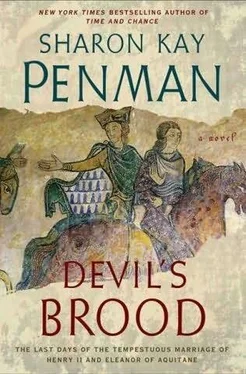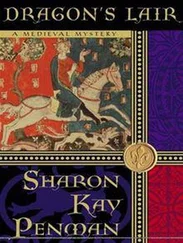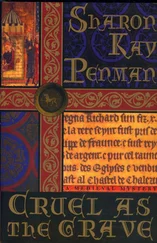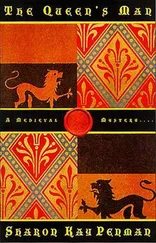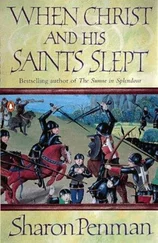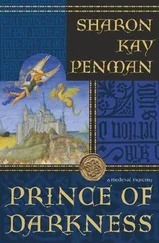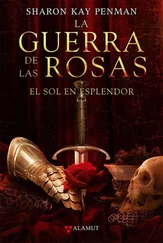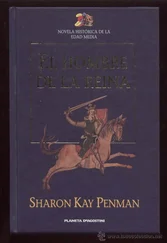Sharon Penman - Devil's brood
Здесь есть возможность читать онлайн «Sharon Penman - Devil's brood» весь текст электронной книги совершенно бесплатно (целиком полную версию без сокращений). В некоторых случаях можно слушать аудио, скачать через торрент в формате fb2 и присутствует краткое содержание. Жанр: Исторические приключения, на английском языке. Описание произведения, (предисловие) а так же отзывы посетителей доступны на портале библиотеки ЛибКат.
- Название:Devil's brood
- Автор:
- Жанр:
- Год:неизвестен
- ISBN:нет данных
- Рейтинг книги:4 / 5. Голосов: 1
-
Избранное:Добавить в избранное
- Отзывы:
-
Ваша оценка:
- 80
- 1
- 2
- 3
- 4
- 5
Devil's brood: краткое содержание, описание и аннотация
Предлагаем к чтению аннотацию, описание, краткое содержание или предисловие (зависит от того, что написал сам автор книги «Devil's brood»). Если вы не нашли необходимую информацию о книге — напишите в комментариях, мы постараемся отыскать её.
Devil's brood — читать онлайн бесплатно полную книгу (весь текст) целиком
Ниже представлен текст книги, разбитый по страницам. Система сохранения места последней прочитанной страницы, позволяет с удобством читать онлайн бесплатно книгу «Devil's brood», без необходимости каждый раз заново искать на чём Вы остановились. Поставьте закладку, и сможете в любой момент перейти на страницу, на которой закончили чтение.
Интервал:
Закладка:
It puzzled Maud that her male relatives could not see this. Was it that men could not believe a woman might share their ambitions, their need for power? Eleanor saw herself as more than Henry’s queen, mother of his children. First and foremost, she was Duchess of Aquitaine, never doubting that she could have ruled as well as any man and better than most. She knew the importance of the dowry she’d brought to each of her marriages. But the expectations she’d brought to those marriages were very different. She’d been given no say in her marriage to Louis, but in daring to wed Henry, she’d taken her destiny into her own hands. She had no intention to be subservient to her new husband. What she’d had in mind was a partnership.
It had not come to pass, of course. She’d underestimated Henry’s strong will and overestimated the influence she could wield over him. It was not that he believed, as most men did, that women were, by their very natures, incapable of exercising power or acting without male guidance. No son of the Empress Maude could ever look upon women as mere broodmares, and Eleanor had counted upon that. She had not realized, though, that Henry was, by his very nature, unable to share power. He had occasionally allowed her to act as regent in his absence, but he always kept a firm hand on the reins. Nor did he accord her opinions the respect she felt they deserved, utterly ignoring her warnings against elevating Thomas Becket to the archbishopric of Canterbury. Too often, she’d found herself relegated to the sidelines or the birthing chamber, more and more aware of the ultimate irony-that the husband she’d discarded had paid her more heed than the one she’d chosen for herself.
But Henry had done more than circumscribe Eleanor’s role as his queen. He’d usurped her role as ruler of Aquitaine. Within two years of his coronation as England’s king, he’d demanded that her barons do homage to him, homage previously reserved for her alone. The riches of Aquitaine had gone into his coffers. The coins issued in her domains bore his name, not hers. When their daughter had wed the King of Castile two years ago, he had given the province of Gascony as her marriage portion, not consulting Eleanor as he disposed of lands she’d expected to go to her heir, to Richard. Even after he’d permitted her to return to Poitiers, he continued to control her financial and military resources, keeping the real power in his own hands.
No, Rosamund Clifford was only one of Eleanor’s grudges. The girl may have ignited the fire, but the fuel was already stacked up, awaiting such a spark. The saddest aspect of it all to Maud was that she was sure her cousin was utterly unaware of the depths of his wife’s resentment. She thought that he was undoubtedly the most brilliant man she’d ever known, with one great failing. He seemed unable to view their world from any perspective but his own. Just as he’d been oblivious to Eleanor’s discontent, he could not comprehend why his eldest son was so unhappy to be a king in name only. Maud had seen the damage his blindness had done to his marriage. She could only hope that it would not prove as harmful with his sons.
Another quarrel had broken out in the gardens below them, this one between Richard and Geoffrey. Richard had demanded a turn in their game of quoits, Geoffrey had refused, and now they were debating the issue in loud, belligerent voices. Glancing at Eleanor, Maud said diplomatically, “I imagine the lads are too near in years to get along with each other. I’d wager they both are closer to Hal.”
“Not really,” Eleanor admitted. “Hal and Geoffrey have their differences, though they usually patch them up. But Richard and Hal are like chalk and cheese, squabbling over the most minor matters. I keep hoping they’ll outgrow it,” she added, not very convincingly.
Maud was surprised, for Hal was very easygoing, with a flair for friendship. “It is only natural,” she ventured, “that Richard would be jealous of Hal. It must be difficult for a youngster to understand why his older brother inherits the crown and the-” She got no further, for Eleanor had begun to laugh.
“Jealous? Richard? Good Lord, no! Richard cares not a fig for England.” Gazing down at her second son, she said, with absolute certainty and great satisfaction, “Richard does not begrudge Hal his crown or kingdom, not as long as he gets Aquitaine.”
On the following day, the Sunday after Pentecost, as church bells pealed and the citizens thronged to watch, Richard was escorted through the city streets to the abbey of St Hilaire. There Archbishop Bertram of Bordeaux and Bishop John of Poitiers offered him the lance and banner that were the insignia of the duchy, and he was officially recognized as Count of Poitou and Duke of Aquitaine.
Maud had attended many opulent feasts in her life: Christmas fetes, weddings, a coronation. She soon decided that Eleanor’s revelries in her son’s honor would rank among the most memorable. The great hall was shimmering in light, sun streaming from the open windows, and ablaze with color, the walls decorated with embroidered hangings in rich shades of gold and crimson. New rushes had been strewn about, fragrant with lavender, sweet woodruff, and balm. Because the hearth had not been lit, the guests were spared the aggravation of smoke spiraling up toward the rafters, and the air was sweet to breathe, perfumed with honeysuckle and violet, their seductive scents luring in from the gardens butterflies as blue as the summer sky.
The tables were as splendid as their surroundings, draped in snowy white linen cloths, set with silver wine cups and salt nefs and delicate finger bowls. Maud, her son Hugh, and daughter-in-law Bertrada were among the honored guests seated at the high table, giving her an ideal vantage point to observe her fellow diners and the happenings in the hall. Clearly Eleanor had spared no expense to make Richard’s day as perfect as possible. A small fountain bubbled with wine, candelabras flared with candles of wax, not tallow, and Maud was impressed to see that every guest had been provided with a knife, for it was normally expected that people would bring their own utensils.
The food and drink were equally praiseworthy. Eleanor had ordered rich red wines from Cahors and Gascony, costly sweet wine from Cyprus, and for the fortunate guests at the high table, the celebrated Saint Pourcain from her Auvergne, a wine so outrageously expensive that even Maud had rarely tasted it.
A trumpet fanfare announced the arrival of each course, followed by ewers bearing lavers of warm, perfumed water so guests could wash their hands. The dishes were carried in on large platters and then ladled onto smaller plates called tailloirs at each table so that the diners could help themselves. It was common practice for three people to share a tailloir, but here, too, Eleanor had been lavish and each dish was meant for two guests, with those at the high table accorded an unheard-of honor, individual dishes for each one. Maud could not recall such a luxury at her cousin’s coronation, not even at the famously extravagant fetes hosted by Thomas Becket in his days as Henry’s chancellor.
She was so delighted by the quality of the food that she contemplated, half-seriously, bribing Eleanor’s cooks to join her household. The guests were offered goose stuffed with herbs, garlic, grapes, and sage. There were grilled oysters and a lamprey torte with walnuts, mint, cloves, and saffron. A delicate soup of almond milk and onions, with sops of bread. Pike in a white wine galentyne sauce. A blancmange of venison meat, blanched almonds, rice, and sugar. The cooks had done themselves proud with the lighter dishes, too, providing an almond tart doucette and another of cream custard, and the sweet wafers known as angel’s bread. Eleanor had even imported oranges from Spain so that her cooks could prepare a comfit with the candied rind, honey, and ginger.
Читать дальшеИнтервал:
Закладка:
Похожие книги на «Devil's brood»
Представляем Вашему вниманию похожие книги на «Devil's brood» списком для выбора. Мы отобрали схожую по названию и смыслу литературу в надежде предоставить читателям больше вариантов отыскать новые, интересные, ещё непрочитанные произведения.
Обсуждение, отзывы о книге «Devil's brood» и просто собственные мнения читателей. Оставьте ваши комментарии, напишите, что Вы думаете о произведении, его смысле или главных героях. Укажите что конкретно понравилось, а что нет, и почему Вы так считаете.
